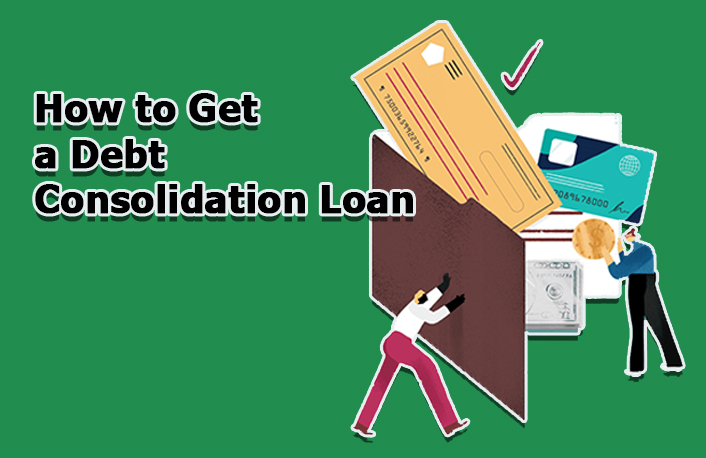Paying off multiple debts at the same time can be overwhelming, making it difficult to get around. Consolidating all of them into one payment is one of the different ways to pay off these debts. Debt consolidation loans can be taken from various lenders and they can either be personal or other types of loans. While this sounds worth it, borrowers often ask how to get a debt consolidation loan.

A debt consolidation loan is a financial plan involving a loan to pay off multiple debts. Most people and businesses often take this process to manage and lessen their debts. Having all your debts in one makes paying off these debts much easier instead of juggling several payments with different interest rates. In this write-up, we will be discussing the steps to get a debt consolidation loan.
Why Should I Get a Debt Consolidation Loan
Aside from paying off several debts, there are other reasons why you should consider getting a debt consolidation loan. Some of the reasons why you should get a debt consolidation loan include:
- To Simplify Loan Payments: It can be confusing to manage multiple debts, consolidating them means you have only a single payment to manage.
- To Save on Loans: Consolidating your loans can help you qualify for lower interest than you would while paying off these multiple loans.
- To Grow Your Credit Score: Early payments on your loan can grow your credit score over time.
- To Prevent Late Fees: With a single payment to manage, you have lower chances of missing a payment and paying late fees.
How to get a debt consolidation loan
Whether you have bad or good credit, the process to get a debt consolidation loan is the same with every lender. While you stand a better chance at qualifying for better rates with good credit, taking this loan is a good idea to help make loan payments easier. Qualifying for a consolidation loan varies by lender but each lender requires a few steps to be taken to qualify for a loan:
Sum up the Combined Debt Balances
Review your current loan statements for the proper figures and calculate the accumulated interest while you wait for your consolidation loan to be paid. It, however, is easier to lessen the loan amount, and then increase it later after you get approved for the loan.
Review Your Credit Scores
Borrowers with higher credit scores tend to qualify for better terms and rates than those with lower scores. This does not disqualify you from the benefits of a debt consolidation with bad credit, instead, it means to save on your debt, you may need to refinance as your credit improves.
Prequalifying with Several Lenders
Most lenders provide a prequalification option for debt consolidation. This allows you to check out your qualification which includes the loan terms and APRs without your credit score being affected. Through this process, you can review the terms, APRs, and fees best for you.
Apply for a Debt Consolidation Loan
After finding the best lender either a bank, credit union, or online lender, you can proceed with your loan application. The lender will require you to provide information like your previous employment, pay stubs, and address history for the past few years. Your credit score will also be pulled to review how much debt you have.
Finish up the Paperwork, Receive Your Funds, and Pay Off Your Debts
After your approval has been finalized, provide any other document required by the lender. Some lenders pay directly to the lenders of your multiple loans, while others fund you to pay them by yourself.
Benefits of Getting a Debt Consolidation Loan
While summarizing multiple loans into one payment is a benefit of this loan, other benefits of a consolidation loan include:
- Flexibility.
- Lucidity.
- Peace of mind.
Reducing your debts can relieve you of stress, create easy loan management, and qualify for flexible loan terms.
Advantages and Downsides of Getting a Debt Consolidation Loan
Debt consolidation loans make loan management much easier but it comes with several benefits and downsides you should be aware of. Using this information, you can determine whether no not debt consolidation is best for you. However, the following are the benefits and downsides of debt consolidation loans:
Advantages
- Credit Score Growth.
- Interest Savings.
Downside
- Fees.
- Possibility for more debt.
Where to Get a Debt Consolidation Loan
Debt consolidation loans can be gotten from several lenders like banks, credit unions, and online lenders. Through these lenders, you can apply and qualify for a consolidation loan for better rates and terms making your loans much easier to pay off.

